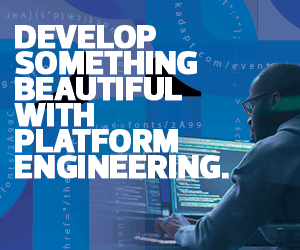With all of these considerations, it is clear why DevOps — the discipline of combining IT operations and software development — is gaining ground in healthcare. Kaiser Permanente in 2018 discussed its DevOps lessons from its enterprise consumer digital strategy.
What’s next as DevOps matures? Platform engineering, which Gartner defines as “an emerging technology approach that can accelerate the delivery of applications and the pace at which they produce business value.” Here’s what healthcare organizations need to know about platform engineering and how it can help support them in their digital transformation.
Healthcare’s Shift Toward Platform Engineering
While DevOps processes helped to improve the speed and quality of software development, organizations still faced challenges, such as added complexity and demand for more resources. The shift to platform engineering simplifies and streamlines tools for developers, allowing for more automation.
“Platform engineering is the natural evolution of DevOps,” says CDW Chief Architect Neil Wylie. “Platform engineering is about combining the right tools with the right qualities into a tool chain to facilitate the needs of the company.”
Healthcare organizations that are looking to increase their agility and innovate their approach to care will want to consider platform engineering if they find their DevOps processes need to change.
DISCOVER: Learn how a modern data platform supports decision making.
Challenges Ahead for Healthcare as It Adopts Platform Engineering
Platform engineering brings challenges for healthcare organizations to consider:
- Security and compliance are top priorities. Platforms should incorporate security tools and processes, which need to be compliant with industry regulations and best practices.
- Interoperability is key. A cohesive platform brings together multiple applications, technologies and systems.
- Platform engineering is not a set destination. It involves continuous improvement and change. Think of platforms from a product management approach, as Forrester advised.
- Platforms need to maintain top performance. This which they should face few disruptions.
- Platform engineering demands automation. Scalability also remains a top factor when transitioning from DevOps.
Engineering Provides a Better Digital Transformation Experience
Healthcare has traditionally been slower to adopt technological changes compared with other industries, but the past three years has shown that organizations have the ability to embark on major transformations with speed.
As digital patient access, virtual care and connected clinician support mature, healthcare organizations should become more familiar with an emerging movement such as platform engineering if they want to remain agile and improve their go-to-market capabilities.
“The point of it is to help developers do whatever it is they’re doing out there faster,” Wylie says. “We want developers to get what they need as easily as possible so we can get time to market as low as possible. We can help them do that by building our platforms to enable them.”











